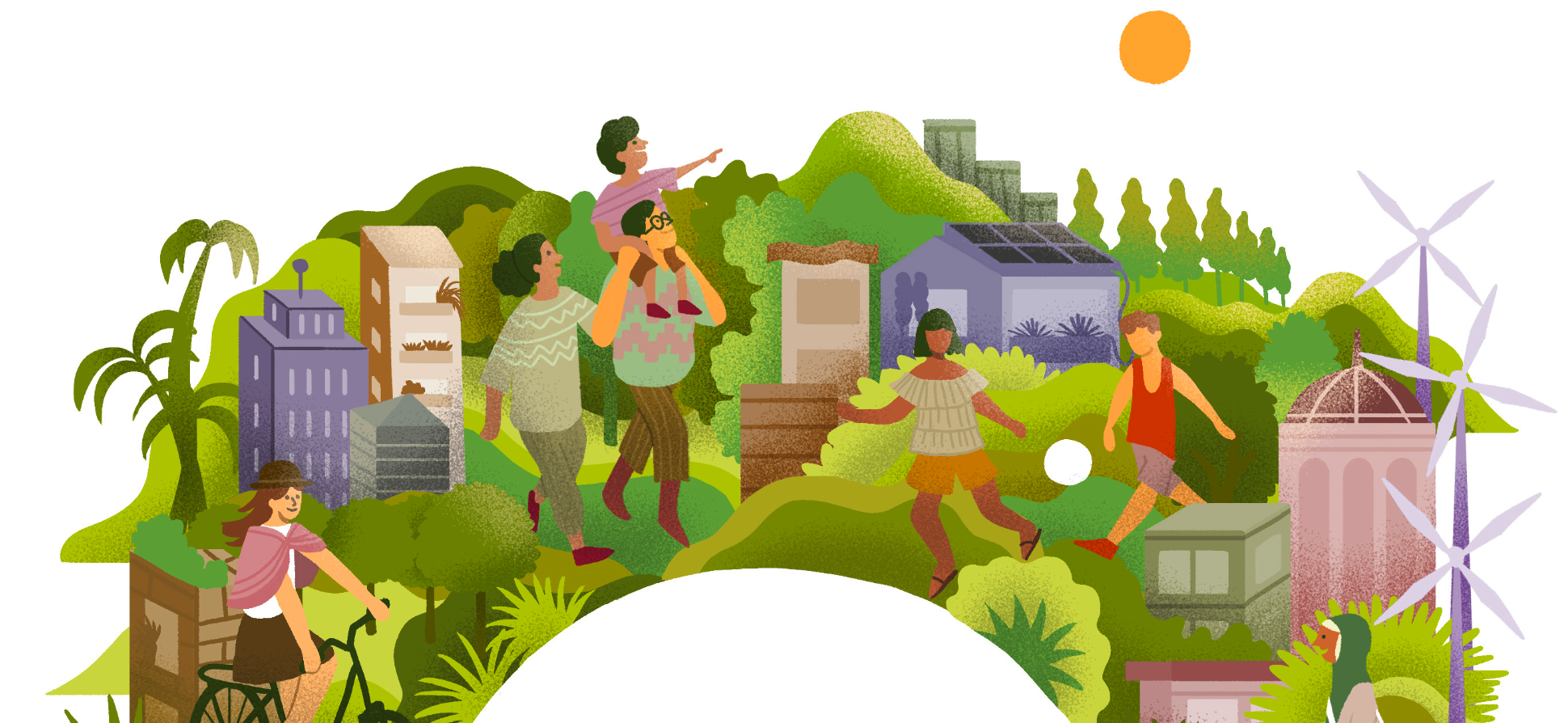World Cities Report 2024

Cities as Hubs for Climate Action
Cities are both the victims of climate change and among its worst offenders: though disproportionately exposed to its impacts, they are also responsible for generating a significant share of global greenhouse gas emissions. From flooding to heatwaves, powerful storms to drought, urban areas frequently find themselves on the frontline of the climate crisis. Many of the world’s largest mega-cities concentrate millions of people and trillions of dollars in assets into areas that are becoming more vulnerable to sudden shocks with every passing year. As they continue to expand, so too does their exposure, paving the way for potentially catastrophic disasters in future.
Climate change is in many ways exacerbating existing inequalities, as the urban poor and other marginalized groups and communities find themselves facing its most extreme impacts with least resources. The complex effects of climate change demand a comprehensive approach, encompassing not only immediate environmental symptoms but also the underlying social drivers of vulnerability. But while the overlapping challenges of environmental stress and rapid urbanization are uniquely daunting, it is precisely this intersection that makes urban climate action so opportune. Climate action can bring an array of additional benefits to cities and residents, from poverty reduction, employment, resilient infrastructure, improved public health and well-being to the restoration of fragile ecosystems.
World Cities Report 2024 provides a wide and far-reaching analysis of the current and expected climate impacts on different regions and cities, as well as the differing vulnerabilities urban populations face as a result of poverty, inequality, ethnicity, gender, disability and other characteristics. Notwithstanding the acute financial and institutional shortfalls many face, this Report shows that cities are leading the way through innovative, community-led approaches that are demonstrating the potential of collaborative, inclusive approaches to climate action. Besides offering a sobering wake-up call on the urgent need to scale up efforts now, various chapters of this Report showcase inspiring practices and success stories that can be replicated or adapted elsewhere.
